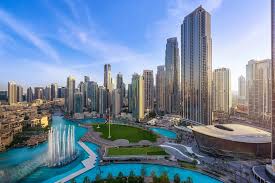Yes, foreigners can buy property in Pakistan, though there are specific requirements, regulations, and guidelines they need to follow. The country has streamlined certain policies to encourage foreign investment in its real estate sector, especially with the growth of modern housing societies and commercial projects. Here’s a guide for overseas investors interested in purchasing property in Pakistan:
1. Eligibility for Foreigners
- Foreign nationals, both individuals and companies, are allowed to invest in real estate in Pakistan, subject to certain conditions.
- Foreigners may purchase both residential and commercial properties; however, they must obtain permission from the relevant authorities.
2. Required Approvals
- Permission from the Board of Investment (BOI): Foreign investors need clearance from the BOI, which oversees foreign investments and ensures compliance with national laws.
- Security Clearance: Foreigners are subject to a security clearance by Pakistan’s Ministry of Interior. This process may take time, as it involves background checks.
- Registration: All property transactions by foreigners must be registered with the local land development authority to ensure legal compliance.
3. Documents Required
- Valid Passport and Visa: Foreign investors must provide a copy of their valid passport and visa.
- No Objection Certificate (NOC): In some cases, an NOC is required, especially if the property is near sensitive or restricted areas.
- Proof of Income or Financing: For financial transparency, foreign buyers may need to show proof of funds or sources of income for the property purchase.
4. Types of Properties Available
- Residential Properties: Foreign investors can buy houses, villas, apartments, and farmhouses in approved residential communities.
- Commercial Properties: Foreigners can invest in commercial properties, including offices, shops, and warehouses, provided all legal requirements are met.
- Restricted Areas: Some properties near border regions, military zones, and other sensitive areas may not be available for purchase by foreigners.
5. Popular Areas for Foreign Investment
- Major cities such as Lahore, Karachi, and Islamabad attract considerable interest from overseas investors due to their established housing societies and commercial hubs.
- DHA and Bahria Town: These are popular residential and commercial developments with modern infrastructure, security, and amenities. They have policies in place that facilitate foreign buyers.
- Gwadar: As part of the China-Pakistan Economic Corridor (CPEC), Gwadar’s development projects have drawn substantial foreign investment interest.
6. Property Buying Process for Foreigners
- Selection: Foreigners should first choose a property in an approved housing scheme or commercial area.
- Legal Due Diligence: Conduct due diligence to ensure the property’s legal status, ownership, and any encumbrances. Consulting a local real estate lawyer or a reputable real estate agency is recommended.
- BOI Application: Apply for the BOI and undergo security clearance.
- Payment Process: Payments must generally be made in foreign currency through legal banking channels. It’s advisable to have a local bank account in Pakistan for smooth transactions.
7. Taxation and Financial Considerations
- Foreign property buyers are subject to similar taxes as local investors, including capital gains tax, stamp duty, and property transfer fees.
- Capital Gains Tax (CGT): If the property is sold within a few years of purchase, CGT applies.
- Rental Income Tax: Rental income from property in Pakistan is taxable, and filing with the Federal Board of Revenue (FBR) is required.
8. Key Considerations and Limitations
- Currency Exchange: Foreign buyers may face currency exchange regulations. All transactions must be transparent and compliant with Pakistan’s financial regulations.
- Repatriation of Funds: The repatriation of profits or proceeds from a property sale can be done but requires BOI permission and proper documentation.
9. Advantages of Investing in Pakistani Real Estate
- High Return on Investment (ROI): Real estate in Pakistan, especially in cities like Lahore, Islamabad, and Gwadar, has shown steady appreciation over the years.Can-foreigners-buy-property-in-Pakistan-
- Growing Market: Pakistan’s real estate market is expanding, with the development of new housing societies, commercial zones, and infrastructure improvements.Can-foreigners-buy-property-in-Pakistan-
- Rental Yields: Renting out property can provide a stable income stream, especially in urban areas with high demand for rental properties.
10. Potential Challenges
- Time-Consuming Procedures: Security clearances and documentation can take time, which may delay the buying process.
- Legal Complexities: Property laws can be complex, and foreign investors are advised to seek legal assistance to avoid potential issues.
Pakistan’s real estate for foreign investors sector is becoming increasingly attractive to foreign investors. While there are several regulations to comply with, the potential for high returns and growth in the property market makes it a worthwhile option for overseas investors. Consulting with legal experts and reputable real estate agencies can facilitate the process, ensuring a secure investment experience.





